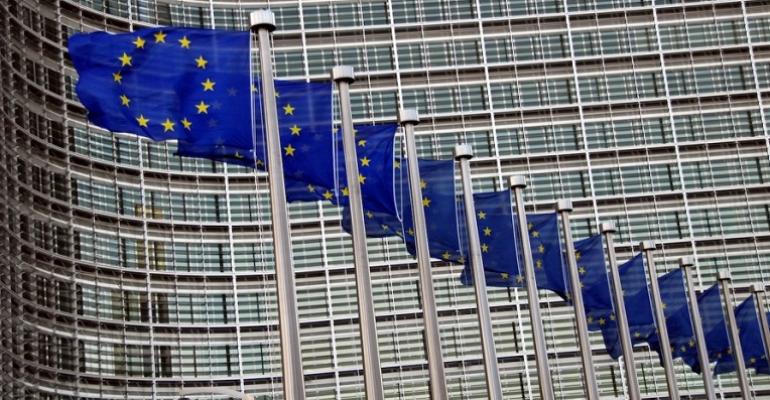A study by the Brussels-based Transport & Environment group analysed 565 journeys taken by 20 vessels to and from Europe operated by four of the world’s largest carriers, Maersk, Hapag-Lloyd, MSC and CMA CGM, and found that the lines were over-charging in more than 90% of cases.
Jacob Armstrong, shipping manager at T&E, said: “Shipping giants are ripping off customers by using environmental measures as a way to charge customers more. Whether it’s disruption in the Red Sea or a new carbon price, shipping companies always win.”
Related: OceanScore boss warns of ETS compliance issues
The T&E survey cited an “extreme case” which the group estimated Maersk charged an extra €325,000 in EU ETS levies. And the NGO said that the Danish carrier adds on average around €60,000/voyage, while MSC adds €25,000, CMA CGM €14,000 and Hapag-Lloyd €23,000/voyage.
“While the individual profits for each voyage are not always that high, for carriers with hundreds of vessels this represents millions in surcharge profits every year,” claimed T&E.
Related: Houthi Red Sea attacks triple EU ETS costs
Moreover, Southern European governments that have warned carriers will avoid Mediterranean ports in favour of terminals outside of the EU, such as in North Africa, will see these ports lose business but Armstrong asks, “why would they [avoid EU ports] if they’re making money from it [the EU ETS]?”
Far from avoiding the ETS, shipping companies appear to be profiting from it, and so are unlikely to look for alternative terminals.
Meanwhile, shippers questioned the ability or desire of some governments to implement carbon charges.
The Global Shippers’ Forum (GSF) for example is concerned that the rising costs of shipping will increase costs further down the line and ultimately cause inflation, leading to an economic downturn.
“You shouldn’t be decarbonising shipping by throttling demand,” warned GSF MD James Hookham.
“This behaviour, if true, is not going to help engender the trust, transparency and truth that’s needed to help get the shipping industry to net zero with the willing support of its customers,” he added.
IMO secretary general Arsenio Dominguez recently told journalists at the MEPC 81 that he is confident that an economic pricing mechanism will be in place by 2027, as mandated by the member states, “but I’m not sure what form it will take”, he conceded.
Shippers, however, are sceptical that the member states have the desire or the ability to police the carriers, with Hookham suggesting that the introduction of a global carbon pricing mechanism will be a green light for carriers to continue to operating on fossil fuels, safe in the knowledge that shippers will be forced to pay, opening the way for some 20 years of profiteering by carriers.
“With a global carbon levy moving ahead at IMO there is an increasing likelihood that the switch to zero-carbon fuels in shipping is going to be funded by shippers of goods rather than shareholders and shipowners,” explained Hookham. “Governments must build in the checks and audits to ensure any levy funds raised from customers are used to fund the transition and not to support a share price”.
The EU ETS is will only levy charges for 40% of emissions this year, with the charges rising to 70% and 100% of emissions in 2025 and 2026 respectively.
Hookham has voiced concerns that these increases will be a greenlight to even greater profiteering.
Maersk, however, responded to what it believes is a flawed analysis by T&E.
The carrier said it is positive that T&E’s analysis demonstrates there is competition between shipping companies when it comes to EU ETS costs.
Nevertheless, “The analysis lacks many of the factors that affect EU ETS costs for shipping companies and therefore the surcharges. The methodology underpinning the analysis is flawed, which leads to inaccurate conclusions.”
With significant costs related to the EU ETS the carrier said it levies a standalone charge in order to provide transparency for shippers.
“Transport & Environment’s analysis uses a €90/t CO2 figure as a general ETS price for Maersk even though the article it quotes clearly states that the figure is only for estimation purposes. No fixed price of €90/t CO2 has been announced,” explained Maersk.
The Danish line said it, “updates its emissions surcharge on a quarterly basis to ensure alignment to the latest EUA price.”
Maersk added that T&E analysed selected trades, but, its analysis relies on outdated surcharge estimates for these trades.
“These older estimates reflect a higher EUA price, leading to higher costs. This in turn leads to the wrong conclusions when compared to the current levels. Newer surcharge estimates are available on Maersk.com and reflect lower EUA prices.”
Reference: https://www.seatrade-maritime.com/containers/te-survey-shows-lines-profiteering-over-eu-ets-charges

